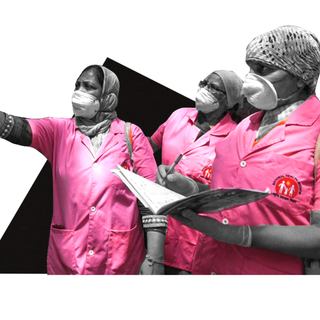The Allahabad High Court earlier this month observed that sexual offenders should not get bail on the condition they get married to or reach a compromise with a survivor. This goes against the mandate of “fair justice” against the survivor, the court said.
The high court made the observation in a case where the accused, a cab driver, allegedly forced the survivor into a sexual relationship. The observation is important in light of the fact that proposing marriage, or other compromises between the accused and survivor in sexual assault cases, as a “solution” contributes to a culture in which the survivors’ agency and legal rights are undermined.
While requesting bail, the accused claimed he was falsely implicated. The accused was granted bail owing to the likelihood that there would be a delay in the trial; however, the single-judge bench noted that bail hearings should not question the “credibility and reliability of the prosecution witness,” which may only be tested during trial.
The single-judge bench in Allahabad High Court also invoked Supreme Court guidelines that were recently issued to lower courts in dealing with sexual assault cases — in a way that does not perpetuate “harmful gender stereotypes.” The apex court’s intervention came when the Madhya Pradesh High Court granted bail to the accused in a sexual assault case on the condition he visits the house of the woman with a box of sweets, and request the survivor to tie a rakhi to him.
Such bail conditions, the Supreme Court had said, violate the law as they ”accept and condone behavior what is a serious offense.”
Related on The Swaddle:
Sexual Assault Survivor Did Not Behave “Like a Victim,” Goa Court Says in Tarun Tejpal Case
“Imposing conditions that implicitly tend to condone or diminish the harm caused by the accused and have the effect of potentially exposing the survivor to secondary trauma, such as mandating mediation processes in non-compoundable offenses… or in any manner getting or being in touch with the survivor, is especially forbidden,” the Supreme Court said.
The SC considered such judgments to be entrenched in patriarchal and misogynistic attitudes, which obstruct justice to survivors of gender-based violence. One of the guidelines the SC issued included bail conditions not mandating contact between the accused and survivor, and that bail conditions be “free from stereotypical or patriarchal notions on women.”
Moreover, the “Courts while adjudicating a case, should not suggest or entertain any notions (or encourage any step) towards compromises between the prosecutrix and the accused to get married, as it is beyond their powers and jurisdiction,” the SC said.
Such practices can not only retraumatize survivors, but they also rely upon regressive gender stereotypes and assumptions about women — that they are seen to be “dishonored” after sexual assault, and are thus deemed unmarriageable. It also assumes that tackling such a social sanction by endorsing marriage between the assaulter and the survivor is in the survivor’s best interests, without taking their consent into account.




